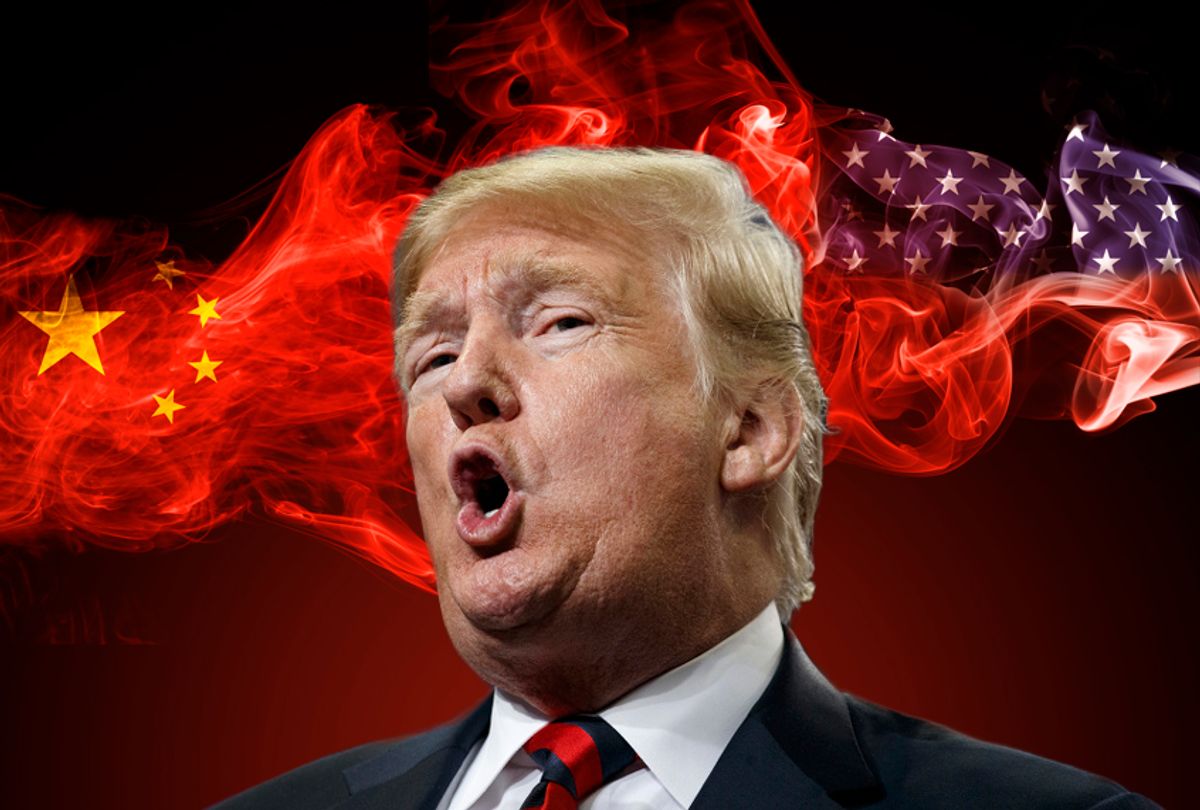Monday’s 400-point Dow slide was far from the worst single day stock market performance under President Donald Trump. But it represents a lasting and growing fear on Wall Street that the massive, uninterrupted stretch of economic growth over the past decade could finally be drawing to a close.
As Politico reported on Tuesday, economists at large institutions are increasingly worried that a recession will hit before the 2020 presidential election — and they put the blame squarely on Trump’s trade policies.
“We are worried,” wrote analysts from Bank of America. “We now have a number of early indicators starting to signal heightened risk of recession. Our official model has the probability of a recession over the next 12 months only pegged at about 20 percent, but our subjective call based on the slew of data and events leads us to believe it is closer to a 1-in-3 chance.”
President Donald Trump has tried to pass the buck for economic instability onto the Federal Reserve, with which he has repeatedly fought over interest rate hikes. But economists at Goldman Sachs, led by Jan Hatzius, said on no uncertain terms that the real problem is the trade war.
“Fears that the trade war will trigger a recession are growing,” the economists’ report stated. “We expect tariffs targeting the remaining $300 billion of U.S. imports from China to go into effect and no longer expect a trade deal before the 2020 election.”
The consequences of a recession at this juncture would be severe, as Trump and the previous Republican Congress have already stretched thin the conventional fiscal policy tools for stimulus with a massive tax cut for the rich, and the Fed has little room to cut interest rates with Trump already having leaned on them to keep rates low. Such a contraction could, as in 2008, kill millions of jobs and force large sectors of the American economy to restructure.

Shares